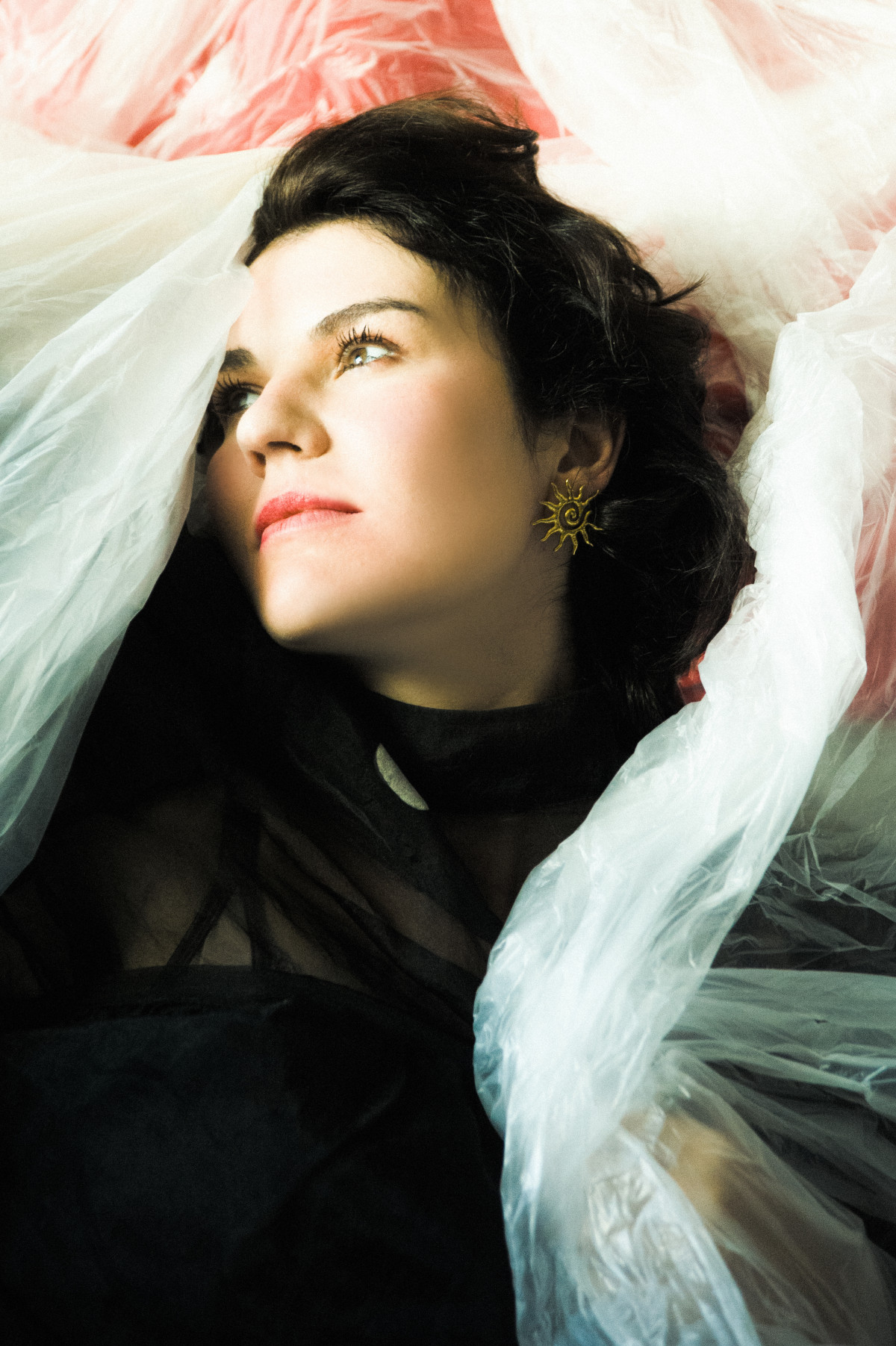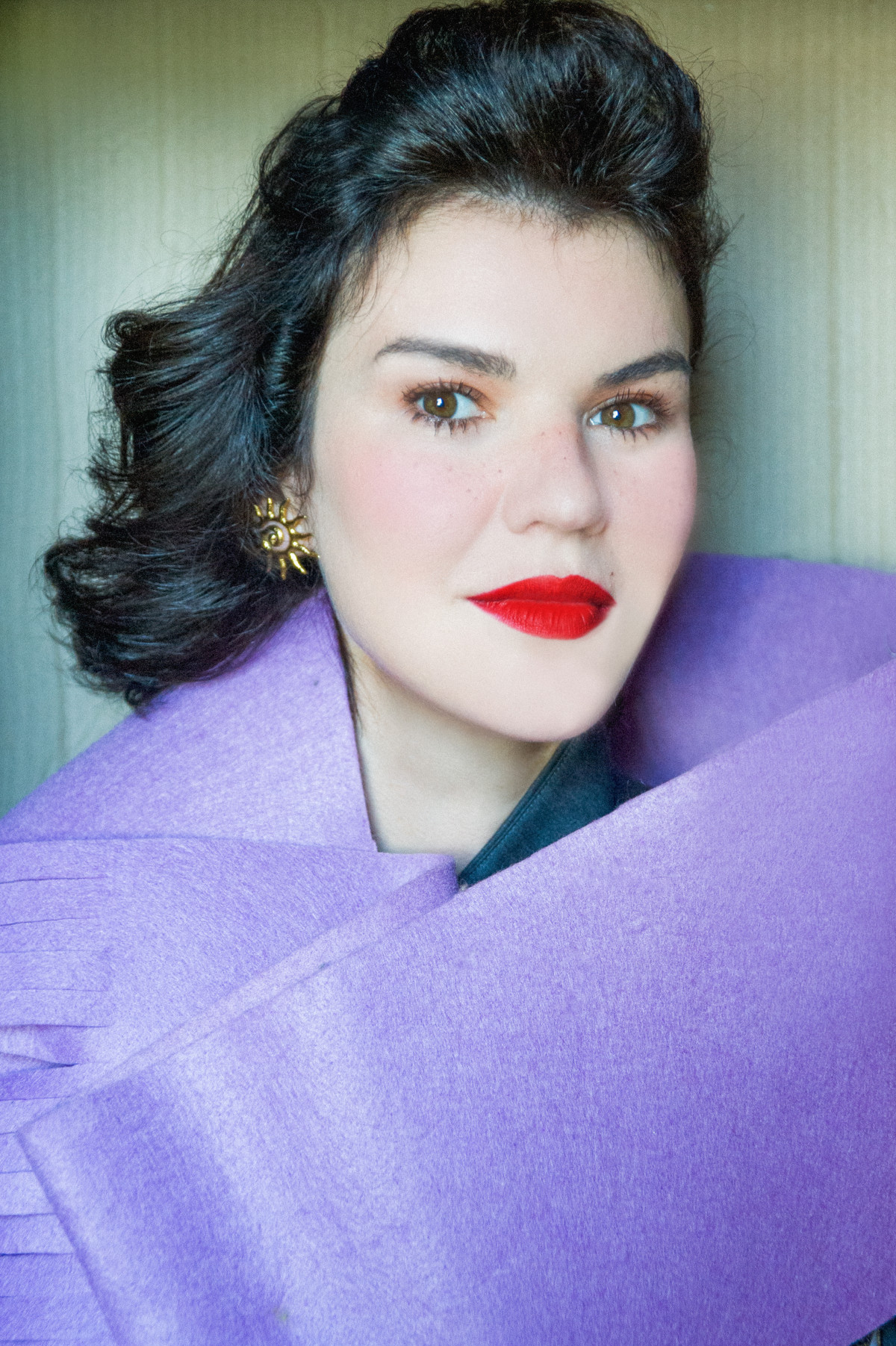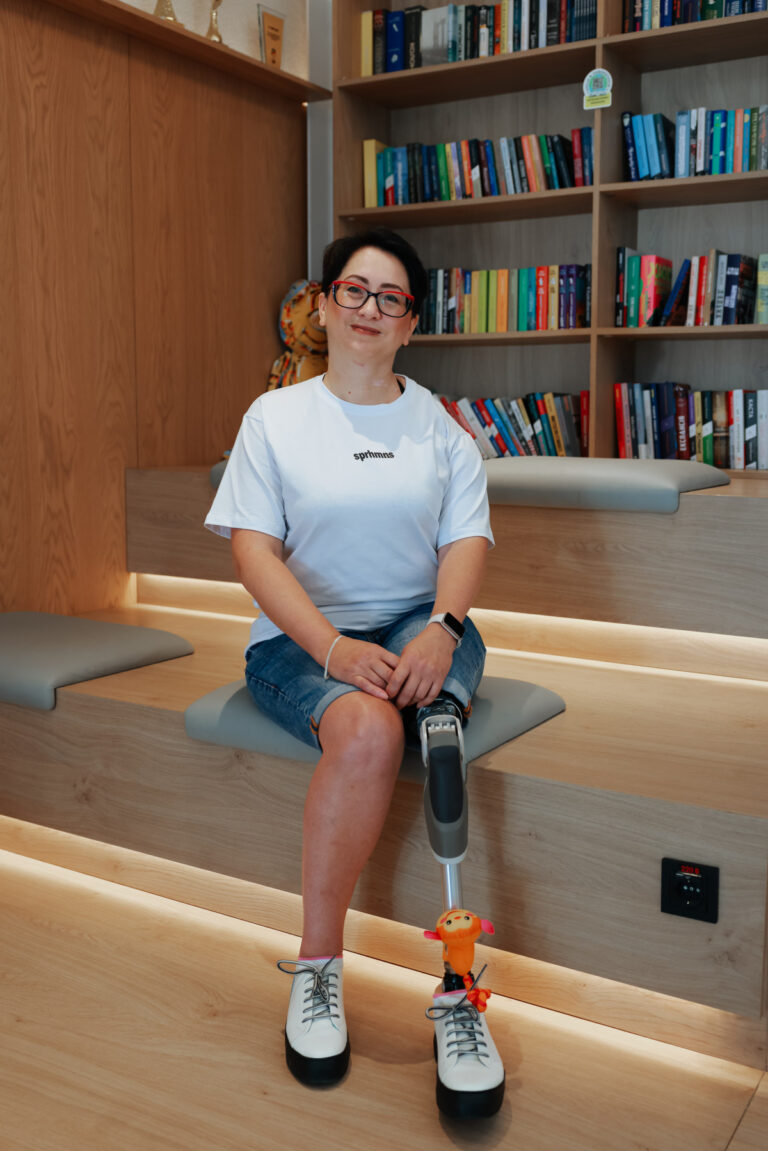An exclusive discussion for ELLE with Olga Kulchynska concerning the profession, rivalry, and passions of an opera diva.
Olga Kulchynska hails from Rivne, an alumna of the Kyiv National Academy of Music, under the tutelage of People’s Artist of Ukraine Maria Stefyuk. She captivates with her theatrical prowess, even occasionally displaying acrobatic feats. The leading roles on the world’s foremost opera venues are entrusted to her. Discover more about the artist’s imaginative journey and the keys to triumph.

Dear Ms. Olga, your performance is genuinely captivating and provides immense joy – you listen and become engrossed! Meeting you today is a precious gift. You represent Ukraine to the entire globe, so please enlighten us about your forthcoming performances.
This October, I will be singing the part of Fiordiligi (Mozart’s Cosi fan tutte) in Hamburg, followed by Marguerite at the Vienna Opera in Charles Gounod’s Faust, and in November, Blanche in Francis Poulenc’s Dialogues of the Carmelites. Preparations for a completely fresh rendition of Faust commence in Munich around mid-December, and next spring in Amsterdam — Mozart’s The Marriage of Figaro (the role of Susanna). Next July, I will be heading to Santa Fe, USA, where I will be performing under the baton of Carrie-Lynn Wilson — a remarkable conductor who continuously and staunchly champions Ukraine.
You don’t just perform — you embody your characters. Your portrayal of Cleopatra in Handel’s “Julius Caesar” profoundly moved me: that silent weeping over the remains of your beloved, attempts to revive him, to awaken him, then you collapse listlessly — and your vocals resonate flawlessly. In other scenes, you practically sing with abandon… How do you accomplish that?
It is vital to be prepared for challenges, to embrace risks, and to resonate harmoniously with the director. If trying repeatedly yields no results, seek another approach. As an instance, in Barcelona, I performed Leila (“The Pearl Fishers” by Georges Bizet), and the director transformed the staging into a beachfront reality show. I was compelled to execute a highly intricate, coloratura aria in diverse yoga positions. Consequently, I devoted significant time to practicing at home: I sang and trained like a sports person. The key lies in consistent practice and an openness to novel experiences. And when you comprehend that you have succeeded, you experience such unparalleled liberation!..
Speaking of novelty: we are increasingly observing opera performers in intimate attire, barefoot, with unadorned hair, and minimal makeup. When you initially encountered this, what was your reaction?
Perhaps my most revealing appearance was in “Caesar” – in a very abbreviated shirt. Initially, it felt slightly awkward, but subsequently, you commence singing, you immerse yourself in the role – and it ceases to be a concern. My earliest exposure to this was in “Capulet and the Montagues” by Vincenzo Bellini: my character materializes casually, then dons a wedding gown, only to remove it subsequently. I can’t assert that it posed a challenge for me; I experienced no discomfort. Incidentally, certain performers are even required to appear on stage in swimwear.
In a past interview, you mentioned your student custom of complimentary concerts. Did you solely perform classical music? What about lighter genres – jazz, pop, operetta? What do you listen to while driving or during your leisure time?
Oh, I adore all of that! Operetta is undoubtedly my preference; the German language feels exceptionally natural to me. I am consistently at ease with this genre of music. I believe that opera performers should certainly engage in pop music, even at home: it lends agility to the vocal apparatus. You must possess the capability to sing not just in a formal setting, which is closest to the innate one. After all, vocalists such as Barbra Streisand, as an illustration, employ alternate techniques to reach the higher notes. And when I embark on performing Streisand’s repertoire, my voice falters in a particular register because she employs a different method of opening the larynx.
Given that our magazine primarily caters to women, I am compelled to inquire: which fashion and cosmetic brands do you favor? What skincare routines do you employ?
I have a skin specialist, originally from Dnipro, but now residing in Amsterdam. Possessing a medical background, she introduces various impactful procedures, such as NAD+ to revitalize cellular activity. This is now a common practice among women – both younger and those aged 45+. Regarding skincare products, I have long favored iS Clinical. Periodically, I make substitutions when supplies deplete, but ultimately, I revert to it. Among the makeup utilized in the theater, professional brands are predominantly employed: MAC, Make Up For Ever. Makeup artists gravitate towards Dior, NYX – owing to its extensive color palette. I invariably request that they apply moisturizer to my skin. Given the frequency of makeup application, maintaining cleansing and care is vital — even if it entails just one exceptional cream. However, I encounter an additional challenge: half a suitcase filled with those diminutive bottles of creams, serums, hair treatments. I am obliged to transport all of this with me.
Well, keep it up, you look fabulous!
Regarding attire, it presents a similar complexity; I desire to include everything in my luggage! I am an individual who delights in dressing up — and not in a minimalist approach, by the way. I travel frequently, so I generally pack fundamental outfits. Although, I relish wearing heels one day, sneakers the next, or opting for a rock-inspired aesthetic. The subsequent day, I yearn to wear something elegant again. Consequently, in this respect, traveling poses a challenge — it is advisable to pack items that would be intriguing to wear. I hold Ukrainian brands in high regard. I possess several items by Khrystyna Rachytska in the style of vyshyvanka. I also appreciate Gepur and Ruslan Baginskiy hats. I favor heels during the summer. Concert footwear is similarly heeled — my preferred brands are Armani, Dior. I am considering Manolo Blahnik. Nevertheless, shoes exceeding seven centimeters in height are unsuitable for the stage — such is our constraint…

We frequently hear from opera vocalists that competition is intense nowadays, rendering it exceedingly challenging to ascend to the grand stage and secure a lucrative contract. What contributed more significantly to your career – securing the top prize in a competition or engaging an accomplished agent?
Everything coalesced synergistically for me. Prior to securing the vocal competition in Barcelona, I theoretically possessed an agent, but he furnished no opportunities; we did not formalize an agreement. And within two months of the competition, the Zurich Opera extended an invitation to me to participate in the rendition of “Capulet and the Montagues” alongside Joyce DiDonato. One month preceding the premiere, a performer withdrew from the production, necessitating my substitution. Over several weeks, I acquired the part, studying remotely with my instructor. The director was Christoph Loy, with whom I have collaborated extensively since then. Such directors genuinely provide vocalists with the highest level of acting education. Following the Zurich production, I have received promising contracts. Of course, the agent also assumes a pivotal role. Currently, Center Stage Artist Management is overseeing my affairs.
How frequently do you collaborate with a coach?
I have pianists with whom I have maintained enduring connections and who possess intimate knowledge of my voice. Notably, they do not work in theaters: one resides in Vienna, operating as a freelancer, while the other pianist is based in Munich. I engage in diverse repertoire with them, placing complete trust in their auditory acuity. Furthermore, I have been studying with a vocal instructor for numerous years, to whom I am profoundly grateful. Ultimately, the voice undergoes constant evolution, adapting over time, and she comprehends this process impeccably. Consequently, having such a peer is immensely significant to me.
Are there specific protocols for safeguarding vocal cords? Is there an insurance system in place?
Yes, such a system exists, although it constitutes a considerably costly undertaking, legally intricate. Certain theaters insure chorus members owing to their substantial daily workload.
Considering your familial lineage or the narratives of couples like Gisella Cipola and Stefan Turczak, do you believe that a fulfilling marriage can solely be achieved with someone from a corresponding profession? Can a partner lacking involvement in the creative realm wholeheartedly embrace your dedication to art?
I am entirely certain that it is feasible. Ultimately, creative professions exhibit vast diversity. A manager or bartender can similarly manifest creativity, you know? It is imperative that the individual alongside you comprehends the intricacies of your vocation, admires it, and exhibits concern, even if they lack comprehensive understanding.
Do you have any pursuits unrelated to music?
I embarked on tango lessons a year ago. I find it exceptionally enjoyable! I attended lessons in Salzburg, as well as in London. Numerous individuals spanning diverse age groups attend dance courses — incidentally, with a greater proportion of men than women. I also enjoy engaging in physical activity, albeit in moderation. Although certain colleagues passionately partake in marathons to such an extent that it transcends a mere pastime, evolving into a lifestyle.







